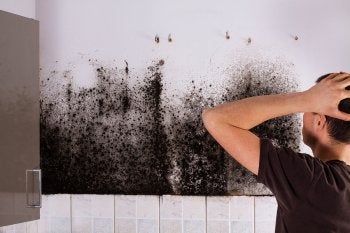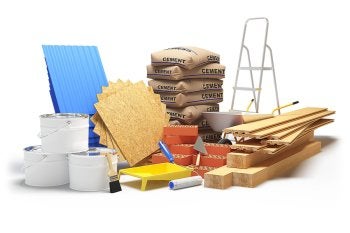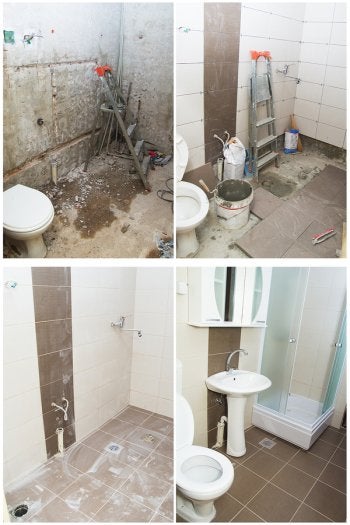-
What Are the Long-Term Effects of Mold Exposure?
Mold is not something that you want to find in your home, and not just because it’s unpleasant to look at. A mold problem can be hazardous to health and impact your indoor air quality in San Francisco. You might not even realize that you have been exposing yourself to mold until you develop symptoms, and in some cases, mold only reveals itself during a home remodeling project. If you want to keep yourself and your family as happy and healthy as possible in your home, make sure you take care of a mold problem as soon as it’s discovered. Please read ahead to learn about some of the long-term effects of mold exposure.
When you are exposed to mold for a long period of time, you may start to experience symptoms of this exposure. Since people are typically exposed to mold through inhalation, many of these symptoms relate to your breathing and respiratory system. Those who already suffer from asthma may notice a bigger problem, but anyone can develop symptoms. Headaches, tightness in the chest, and irritation of the skin and eyes are all potential long-term effects of mold exposure as well. Remember that infants and the elderly are particularly vulnerable.

-
Questions to Ask Your Contractor About Construction Materials
Whether you’re buying a house or looking to do some home remodeling in San Francisco, it’s a good idea to talk to your contractor about the process before getting started. You should be specifically concerned with the types of construction materials that your contractor uses, as they can impact your home in a variety of different ways. Construction materials can affect your indoor air quality as well as the overall safety of your home, and they can even influence your home’s susceptibility to mold growth. Here are some questions to ask your contractor about construction materials .
How will they affect indoor air quality?

The materials that comprise your home will have an effect on the indoor air quality within your residence, so you’ll want to talk to your contractor and make sure he or she has safe materials in mind. Asbestos and lead are both harmful substances that were once popular go-to options for all kinds of construction projects. Both of these materials can take away from your indoor air quality, which can make life difficult for people who have problems with their respiratory systems. Find out what types of construction materials your contractor plans on using in advance so you can be sure they don’t contain any hazardous components.
Will my house be safe?
Construction materials that contain lead or asbestos are problematic because they can cause health complications through exposure. Too much exposure to asbestos can lead to asbestosis, which is a health problem that affects your respiratory system. Lead paint is also harmful when ingested, especially when it comes to particularly young or old people. This can cause learning disabilities and brain damage, so be sure to talk to your contractor before a home renovation product that might disturb existing asbestos or lead.
Am I at risk for mold?
Mold thrives in dark, damp places, and it can be bad for your indoor air quality as well as the health of your family. You’ll want to minimize your risk for mold growth during house remodeling so that you can maintain your indoor air quality as well as your health and comfort.
-
The Link Between Renovating and Indoor Air Quality
When planning your home renovation project near San Francisco, you are probably busy looking at paint colors, new appliances, and your future decorating scheme. These are important choices to make, but your indoor air quality is just as important to consider. You may not realize that performing renovations on your home may result in future breathing problems for you or your family. Continue reading to learn more about the link between your indoor air quality and your home renovations .
Updating Outdated or Banned Materials

During your renovation project, you may be updating your bathroom or kitchen with better and newer appliances. However, you must also look to the flooring, painting, and other building materials that were used in addition to your older appliances. Some building materials, such as paint, may contain banned substances, like lead, that could cause significant health problems. If you are updating a bedroom or living room, then consider the age of the flooring. Outdated carpeting may not only be displeasing to the eye, but you may have poor indoor air quality from it too.
Staying Protected While Renovating
While you are doing any sort of home remodeling, you should remain protected at all times. If you are working in an attic or crawlspace, then wear a mask to protect yourself from breathing in dust or other harmful contaminants. In the event you are working with wood or building materials—such as hanging drywall or knocking down walls—then wear a breathing mask to avoid inhaling drywall and wood dust. You must keep yourself protected however possible when performing home renovations.
Testing Air Quality Before Renovating
Proactively testing the indoor air quality before renovations is another smart way to prevent health problems in the future. Professional technicians can test your indoor air quality to locate potentially harmful bacteria, such as mold or asbestos. They can also help you choose the right building materials and products to ensure your home renovations are safe. These services are essential to performing a healthy and safe remodeling project.
-
Why Choose Healthier Materials for Your Remodel?
Just as you are probably choosing more energy-efficient appliances, you will benefit most by choosing healthier building materials during your house remodel. Healthier home renovations near San Francisco will result in a more enjoyable remodeling project and a better environment for you and your family to live in. Here is a quick look at some healthy materials to use for your home remodeling and why you can benefit most by choosing them:
There are certain materials that have been deemed as “volatile organic compounds,” also called VOCs. These materials should be avoided at all cost during your home remodeling project. Products filled with VOCs can cause harmful off-gassing after your renovation is complete, which may result in health problems. You should also choose building materials that prevent mold and bacteria growth. Many flooring and paint materials offer this benefit, and it is healthier to choose these for your next home remodeling project. Mold, mildew, and other bacteria can cause a significant amount of respiratory problems, including increased asthma symptoms, allergies, and even cancer. Choose healthier home renovation materials to ensure you have a healthy renovation and future.

RECENT POSTS
categories
- Uncategorized
- Lead
- Mold
- San Francisco Mold & Asbestos Removal
- Indoor Air Pollution
- Mold Remediation
- Asbestos
- Safe Air Fast
- Mold Inspection
- Remediation
- Bacteria Testing
- Asbestos Testing
- Abatement
- Lead Testing
- Sewer Line
- Lead Survey
- Mold Testing
- Air Quality Inspection
- Home renovations
- Allergies
- Renovation Contractor
- Infographic
- lead paint
- Air Quality
- Air Quality Test
- Mold removal
